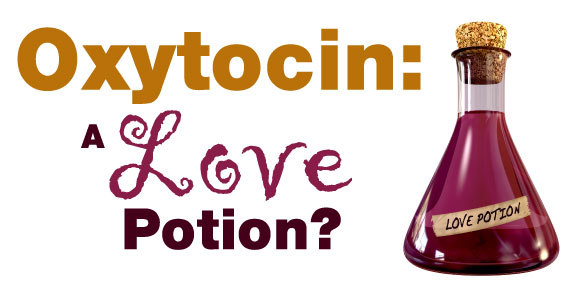
As scientific research progresses in unpacking the biochemistry and neurology of love relationships, we can expect some very helpful insights. Oxytocin has been in the news of late as a multitasking hormone.
Common to mammals, oxytocin has been dubbed the ‘bonding’ hormone. It is produced during childbirth (causes uterine contractions) and breast feeding (responsible for the ‘let down’ reflex that triggers the release of milk) and during orgasm (in both men and women).
Apart from reproductive organs, oxytocin appears to also affect the brain. Recent research has identified a possible connection to autism (lack of oxytocin : here) and fidelity. In this study, men in committed relationships who were administered synthetic oxytocin were found to keep a greater distance from attractive females (10-15cm) when compared to a control group. Similar results occurred with photographs of attractive women. No effect was found on single men. The authors speculate that oxytocin is not only involved in attraction to a mate and the initial formation of monogamous pair-bonds, but may also be important in maintaining fidelity. (Journal Of Neuroscience: here)
In other commentary on the research, one author of an infidelity blog has wondered whether the absence or low levels of oxytocin might explain the wandering of some spouses from their monogamous partnerships.
Unfortunately, the findings of this study do nothing to explain why some men in committed relationships not only get close to attractive females, but cheat on their mates and have affairs. It would be interesting to compare the oxytocin levels in men who cheat versus men who do not. Could the “I just couldn’t help myself” excuse be more than just a lame line used by men who are caught by their spouses? If so, perhaps the answer to the prayers of millions of people who have been on the receiving end of infidelity comes in the form of a simple nasal spray.
Is Oxytocin the Real Love Potion?
Its Cheating







Leave A Comment